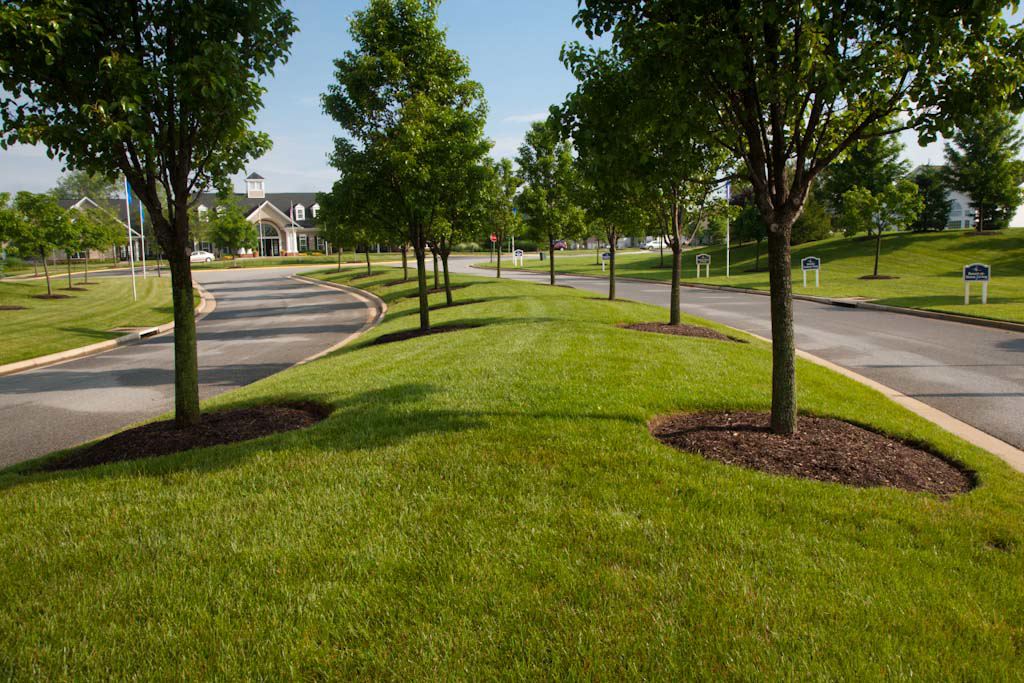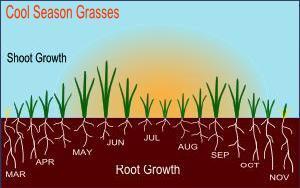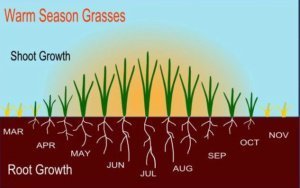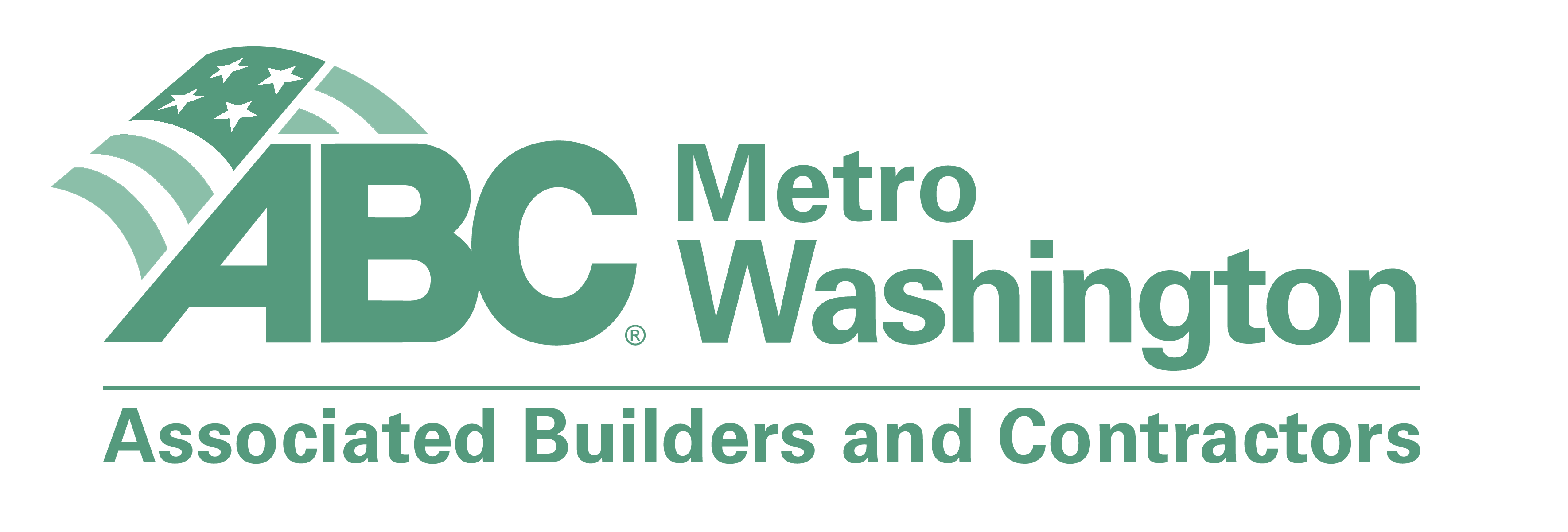Summer Lawn Care Tips for Commercial Properties

Summer lawns tend to see a lot of action. People venture outside for sporting events, social gatherings, concerts, and a whole host of other activities. As a property owner or manager, you want to see healthy lawn throughout your site all year long, but the additional use coupled with the high heat and low rainfall characteristics of summer can really sideline even the best summer lawn maintenance plans. The best summer lawn care plans take into consideration the type of lawn you have and work to minimize additional stress and damage with good management practicies.
What Type of Lawn Do You Have?
Cool Season Lawns – these types of lawns are common in the Mid-Atlantic region and are made up of seed varieties like Fescue and Rye. These lawns will perform best in the cool temperatures of spring and fall but go dormant in summer without LOTS of supplemental water.
Warm Season Lawns – these lawns are common in warmer climates like the Southern US. Zoysia and Bermuda Grass are examples of warm season lawns and they tend to thrive in hot, dry summer temperatures but look to be dead in spring and fall.
Most commonly, commercial properties have some blend of the two types of grass, and depending on the climate, the blend will be heavily weighted towards one type or the other.


Summer Lawn Care Do’s & Don’ts
- Mow Higher – Lawns should be mowed at no less than 3″ during the summer. The taller height helps to shade out competition weeds and encourages deeper root growth. This may mean that you see your landscape contractor a little less frequently, but mowing too often or cutting the grass too short will result in the turf burning up from lack of water and high heat.
- Easy on the Food – Avoid fertilizing in the hot summer months. Unless your property’s lawn is watered using an automatic irrigation system, fertilizers can burn a summer lawn. Excess Nitrogen coupled with little to no natural rain results in a dry and brittle lawn.
- Lawns are Thirsty – Water is key if you want a lush green lawn for your commercial property all summer. Established lawns need at least 1.5″ of water per week (20-30 minutes of water three times weekly). If you have an irrigation system, make sure your service provider adjusts the zones covering the lawn to accommodate the increased water needs. If you don’t have irrigation, see if your landscape provider offers watering services.
- People can wreak havoc on lawns. Foot traffic will trample the already heat and drought-stressed blades of grass and can result in heavily used areas showing signs of dieback in fall. By all means, don’t rope off your lawns and post no trespassing signs! Just keep in mind that heavily used areas should be on the schedule for fall aeration and overseeding treatment that helps to increase turf density and re-establish grass in areas that may have suffered damage during summer.
- Put Pups in a Park – Pet waste also contains a high concentration of ammonia which is the equivalent of lighting the lawn on fire. Brown patches that result from pets will not cure themselves. If your property has a lot of four-legged visitors and residents, it may be worth dedicating a space for them that is away from the common lawn areas.
- Leave the Weeds (sorta) – Forego most weed control measures. Many of the most troublesome weeds (crabgrass and goosegrass) are annual weeds and will die at the first frost. It is best to attack those the following spring with aggressive pre-emergent treatments to keep them from invading your lawn next season. Perennial weeds like Clover, Nutsedge, and Plantain can be effectively spot treated during summer. Be aware – any weed control that occurs in summer will leave open spaces in the lawn that will require reseeding during the fall season to re-establish desired groundcover.
Does My Property Have a Summer Lawn Care Program?
Your annual landscape maintenance contract may not clearly outline what lawn services are considered “summer lawn maintenance” so don’t be afraid to ask. Generally, commercial landscape contractors provide some sort of broadleaf weed control service as part of the annual contract, but other services are usually on a proposal basis. This is because services like watering, perennial weed control, and insect and disease outbreaks are very weather dependent so vary from year to year.
A well-maintained lawn can increase commercial property values by as much as 15% so summer lawn maintenance is an important part of a successful year-round turf program. Summer lawn care programs should aim to supplement water when feasible, reduce chemical and mechanical damage by cutting back on mowing and weed control, and minimizing the damage that can be caused by heavy use by making sure aeration and overseeding are on the horizon. Complete Landscaping Service can help develop summer lawn care programs that meet your unique needs. Give us a call today if you are ready to talk turf!






